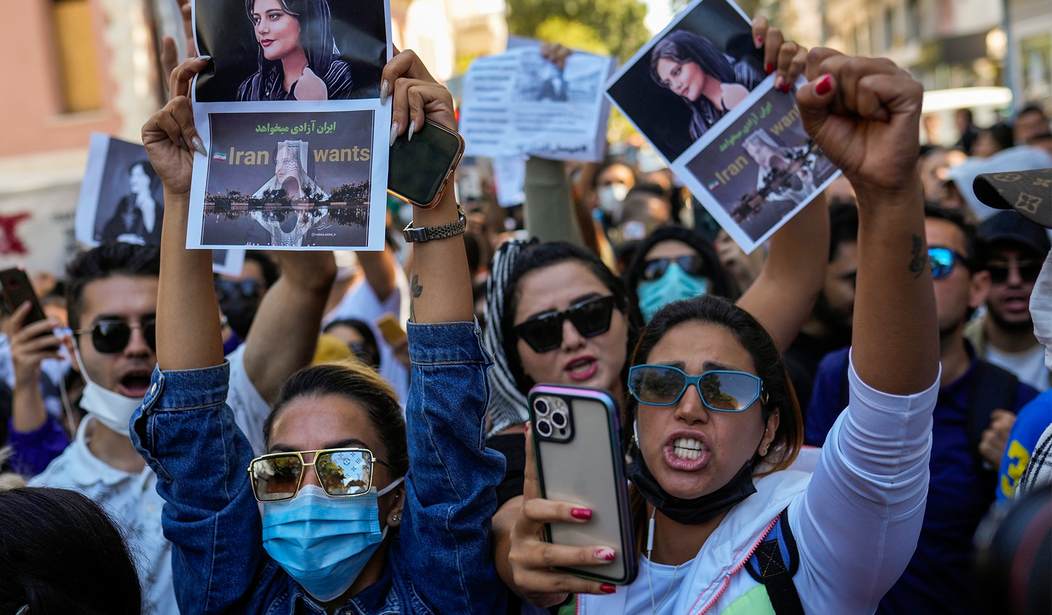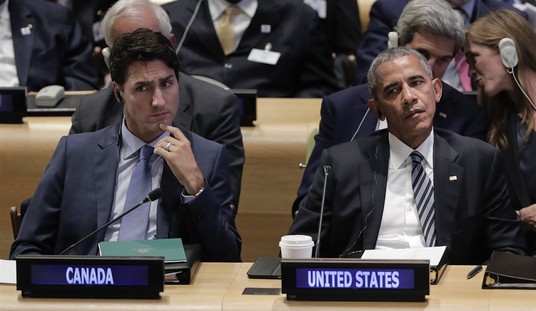September 16 is the one-year anniversary of the death of Mahsa Jina Amini, who was arrested for not wearing her hijab properly and then died while in the custody of the morality police. Amini’s death set off a wave of protests that has yet to stop completely.
Amnesty International says that more than 500 Iranians — including dozens of children — have been killed in the protests and more than 125,000 have been arrested. But the pain for Iranian families who lost a loved one during the protests continues as Iranian authorities are now cracking down on families who look to honor their loved ones in small family gatherings in advance of the anniversary of Amini’s death.
The intimidation has been so widespread and intense that it’s come to the attention of Amnesty International.
Amnesty International has called on Iranian authorities to allow the commemoration of the first anniversary of those killed during “Women, Life, Freedom” protests in 2022 amid a campaign by security forces marked by “harassment and intimidation” against victims’ families “to enforce silence and impunity.”
The rights group said in a statement released on August 21 that a new research report shows that Iranian authorities have been subjecting victims’ families to arbitrary arrest and detention, imposing “cruel restrictions” on peaceful gatherings at grave sites, and destroying victims’ gravestones.
According to Iran International, family members of Shirin Alizadeh, Mohammad Javad Zahedi, and Esmail Barahouei — all of whom were killed by government forces — as well as Mohammad-Mehdi Karami who was executed for “corruption on earth” for what the authorities say was his involvement in the death of a morality policeman.
Mashallah Karami’s arrest has triggered widespread reactions, with many Iranians describing it as proof of the regime’s fear of potential unrest on the anniversary of the uprising.
On Wednesday, regime agents raided Nasrin Alizadeh’s home, detained her, and transferred her to an undisclosed location. Last week, security forces arrested Kourosh Vaziri, whose 35-year-old wife Shirin Alizadeh was killed by regime agents while she was filming protests alongside her husband and child in Mazandaran province last September. The moment she was shot and killed was captured and recorded on his mobile phone.
Try as they might, regime bullies will not be able to prevent what is sure to be large protests against the killing of Mahsa Amini next month. But even though authorities have somewhat successfully beaten down the large protests in the aftermath of Amini’s death through massive arrests and targeted killings, the protests have continued by Iranian women through the “Women, Life, Freedom” movement and the defiant gesture of refusing to cover their heads with the hijab.
For the families of the dead, even the sorrow of remembrance has been stifled in an unspeakably brutal crackdown on any hint of politics.
There are risks for those who refuse to let the regime forget. Last month, the family of Abolfazl Adinehzadeh, a teenager who was killed in October at the height of the protests, wanted to mark what would have been his 18th birthday by throwing a party by his grave. The public were invited to join in. But when the security forces heard about the event, in a village in the north-east of the country, they moved in the night before to arrest family members.
In a sign that the authorities can never win, friends and neighbors celebrated Adinehzadeh’s life by posting on social media. “The families who seek justice will always support each other,” Khazaei’s sister said in a video posted online.
Sometimes the crackdown on families became violent.
In another high-profile case, Mahmonir Molaei-Rad, whose young son Kian was killed in disputed circumstances last year, has found herself at the centre of the storm after pledging to commemorate the day he would have turned 10.
But the event turned into a nightmare as security forces arrived and shot her cousin dead, claiming he had killed a policeman during the protests.
The defiance of the Iranians is inspiring — especially the women who risk imprisonment and beatings for not wearing the hijab.
“Every morning, when I go to work without wearing my scarf, I feel I’m continuing our struggle for freedom,” said Delara, a 32-year-old businesswoman. “We may not be chanting slogans in the street but walking outside without a hijab is no less than that.”
It’s easy to contrast the brutality of the Iranian regime with the courage and defiance of citizens. What’s more, it appears that the defiance is actually making a difference with some hardliners.
“The authorities just don’t want to admit they’re quietly opening up,” said a conservative journalist. “In two years’ time, we won’t have such discussions about hijab anymore,” he added.
That remains to be seen. How authorities react to protests on the anniversary of Mahsa Amini will probably give a huge impetus to the social revolution in Iran.









